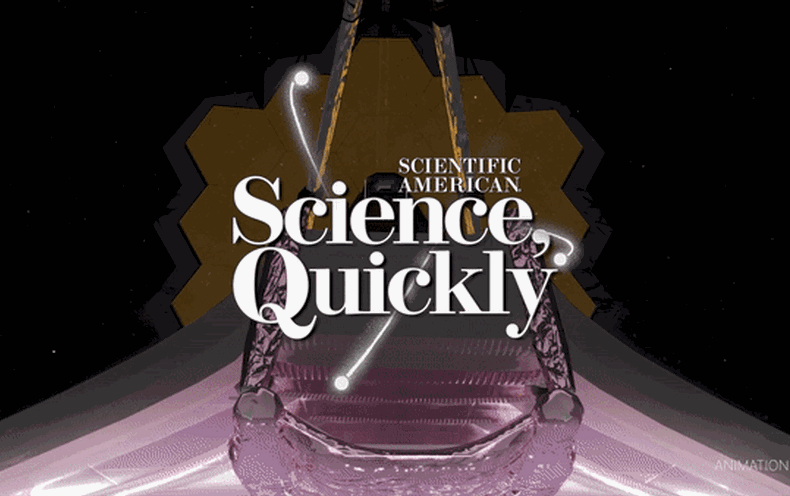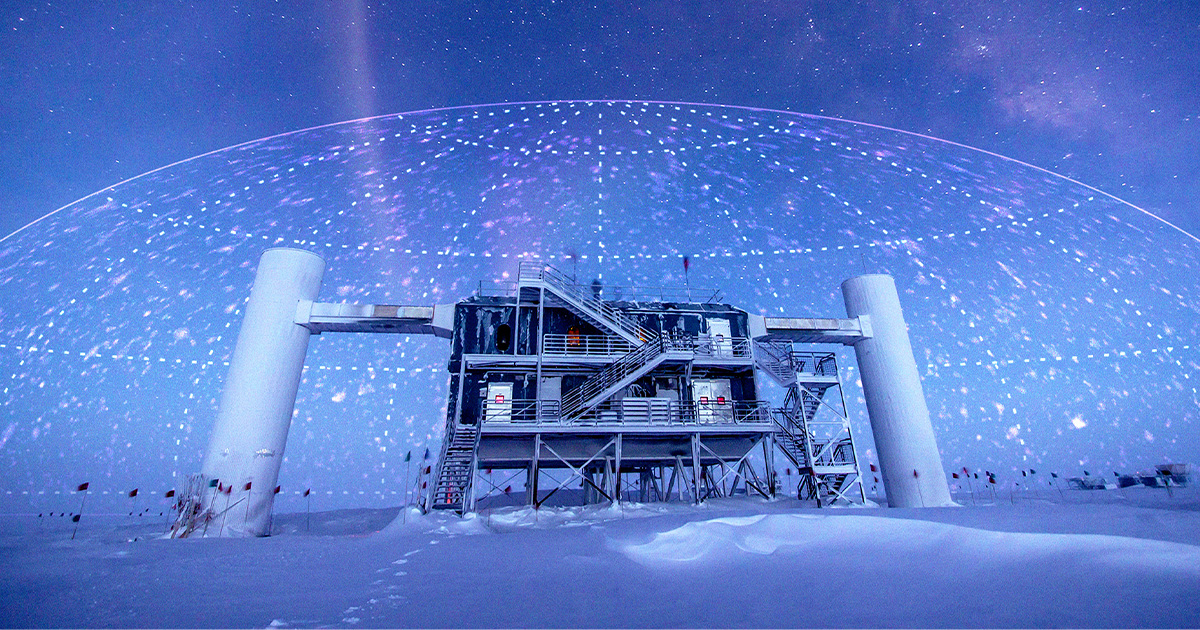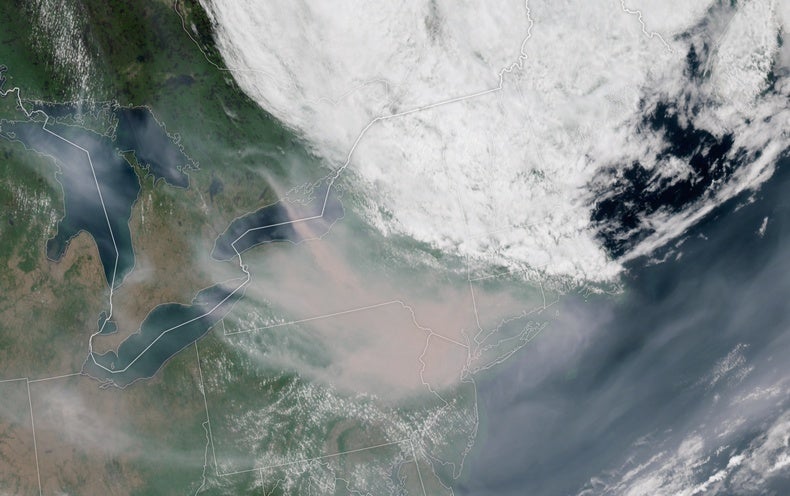It was not obvious that transcendental numbers should exist. Moreover, it’s challenging to prove that a given number is transcendental because it requires proving a negative: that it is not the root of any polynomial with integer coefficients. In 1844, Joseph Liouville found the first one by coming at the problem indirectly. He discovered that… Continue reading Recounting the History of Math’s Transcendental Numbers
Tag: Quantum Stuff
Have Astronomers Seen the Universe’s First Stars?
SUBSCRIBE: Apple | Spotify Lee Billings: Hi, and welcome to Cosmos, Quickly. This is Lee Billings. Carin Leong: And this is Carin Leong. [CLIP: Show theme music] Billings: Carin, thanks for being here. A quick question for you: What’s super-duper bright and hundreds or even thousands of times heavier than our entire solar system, yet… Continue reading Have Astronomers Seen the Universe’s First Stars?
Why Does Smoke Turn the Sky Orange?
If you are one of the tens of millions of people who’ve been affected by smoke from the millions of acres of Canadian forest that are currently aflame, then you know what it’s like to live under a murky brown sky, with the sun a sullen reddish orb glaring menacingly down at you. There’s very… Continue reading Why Does Smoke Turn the Sky Orange?
What Can Jellyfish Teach Us About Fluid Dynamics?
The jellyfish that move through the seas by gently pulsing their saclike bodies may not seem to hold many secrets that would interest human engineers. But simple as the creatures are, jellyfish are masterful at harnessing and controlling the flow of the water around them, sometimes with surprising efficiency. As such, they embody sophisticated solutions… Continue reading What Can Jellyfish Teach Us About Fluid Dynamics?
An Enormous Gravity ‘Hum’ Moves Through the Universe
Most likely, the gravitational waves come from pairs of supermassive black holes that are spiraling around each other inside merging galaxies. But we might be seeing something else entirely, perhaps something exotic such as ruptures in space-time itself resulting from loops of energy called cosmic strings. “Finding for the first time the suggestion of background… Continue reading An Enormous Gravity ‘Hum’ Moves Through the Universe
Which Creature Was the First to Take a Nap?
“No live organism can continue for long to exist sanely under conditions of absolute reality,” wrote Shirley Jackson in the first line of her 1959 horror novel The Haunting of Hill House. “Even larks and katydids are supposed, by some, to dream.” Jackson penned this line to introduce her haunted house, where the line between… Continue reading Which Creature Was the First to Take a Nap?
A New Map of the Universe, Painted With Cosmic Neutrinos
Probing Fundamental Physics Neutrinos offer rare clues that a more complete theory of particles must supersede the 50-year-old set of equations known as the Standard Model. This model describes elementary particles and forces with near-perfect precision, but it errs when it comes to neutrinos: It predicts that the neutral particles are massless, but they aren’t… Continue reading A New Map of the Universe, Painted With Cosmic Neutrinos
Neural Networks Need Data to Learn. Even If It’s Fake.
On a sunny day in late 1987, a Chevy van drove down a curvy wooded path on the campus of Carnegie Mellon University in Pittsburgh. The hulking vehicle, named Navlab, wasn’t notable for its beauty or speed, but for its brain: It was an experimental version of an autonomous vehicle, guided by four powerful computers… Continue reading Neural Networks Need Data to Learn. Even If It’s Fake.
Extreme Heat Is Deadlier Than Hurricanes, Floods and Tornadoes Combined
On June 25, 2022, Esteban Chavez, Jr., started his day like any other, working his route in Pasadena, Calif., as a driver for UPS. But the city was in the middle of an intense heat wave, and by midafternoon the temperature was higher than 90 degrees Fahrenheit. After completing his last delivery of the day,… Continue reading Extreme Heat Is Deadlier Than Hurricanes, Floods and Tornadoes Combined
Wildfires Will Only Get Worse. We Need Satellite Tracking of Air Pollution
People on the East Coast earlier this month experienced something that occurs with relative frequency in the West: ominous orange skies lit up by dense wildfire smoke. Across the I-95 corridor they responded with many important questions: How bad is the air quality where I live? Can I exercise outside? When will the smoke go… Continue reading Wildfires Will Only Get Worse. We Need Satellite Tracking of Air Pollution





